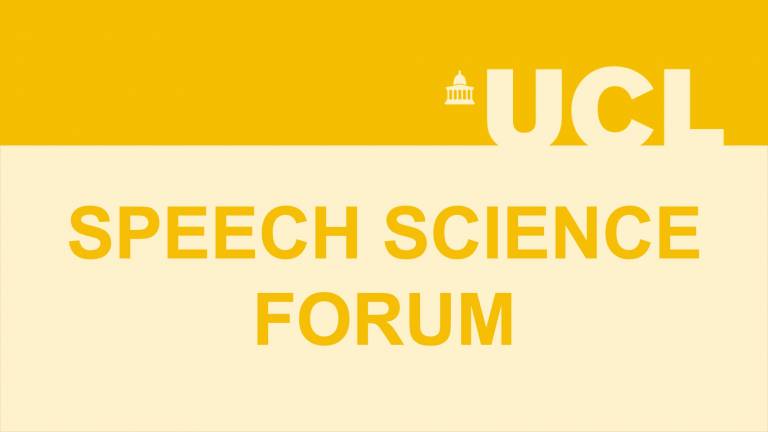Speech Science Forum: Dr Ronan McGarrigle
12 December 2019, 4:00 pm–5:00 pm

Title: Effortful listening under the microscrope: Examining relationships between the task-evoked pupil response and the experience of effort and tiredness from listening. Room: 118, Chandler House
This event is free.
Event Information
Open to
- All
Cost
- Free
Organiser
-
Nadine Lavan
Location
-
1182 Wakefield StreetLondonWC1N 1PF
Effortful listening under the microscrope: Examining relationships between the task-evoked pupil response and the experience of effort and tiredness from listening.
Effort and tiredness from listening are common complaints from individuals suffering from declines in hearing and/or cognition. In recent years, pupillometry has emerged as a possible objective tool for measuring the mental effort associated with listening in adverse conditions. However, the precise relationship between changes in the task-evoked pupil response (TEPR) and the subjective experience of listening-related effort and tiredness remains unclear. Data from two experiments are presented that seek to examine the relationship between TEPR and perceived effort and tiredness by measuring covariance in these measures over the course of a sustained effortful listening task. For Experiment 1, we sought to replicate the effect of SNR on TEPR and self-report indices of effort and tiredness from listening during a competing talker task. Results demonstrated that a more adverse signal-to-noise ratio resulted in both larger TEPRs and increased self-report effort and tiredness ratings. The data also suggest that the effect of SNR on tiredness from listening ratings may be masked when using a single 'pre-post' measure of perceived tiredness. Experiment 2 sought to simulate a more sustained (and thus, fatiguing) challenging listening condition to examine these relationships in more detail. Changes in TEPR were found to co-vary with changes in tiredness from listening ratings; higher tiredness ratings were associated with smaller TEPRs. No relationship was found between TEPR and perceived effort ratings. This suggests that changes in TEPR at the individual level represent a reliable physiological correlate of tiredness from listening, but not effort. Tiredness from listening ratings were also negatively associated with perceived performance ratings, suggesting a possible link between the feeling of tiredness from listening and self-efficacy.
About the Speaker
Dr Ronan McGarrigle
Research Associate at University of York
More about Dr Ronan McGarrigle Close
Close

